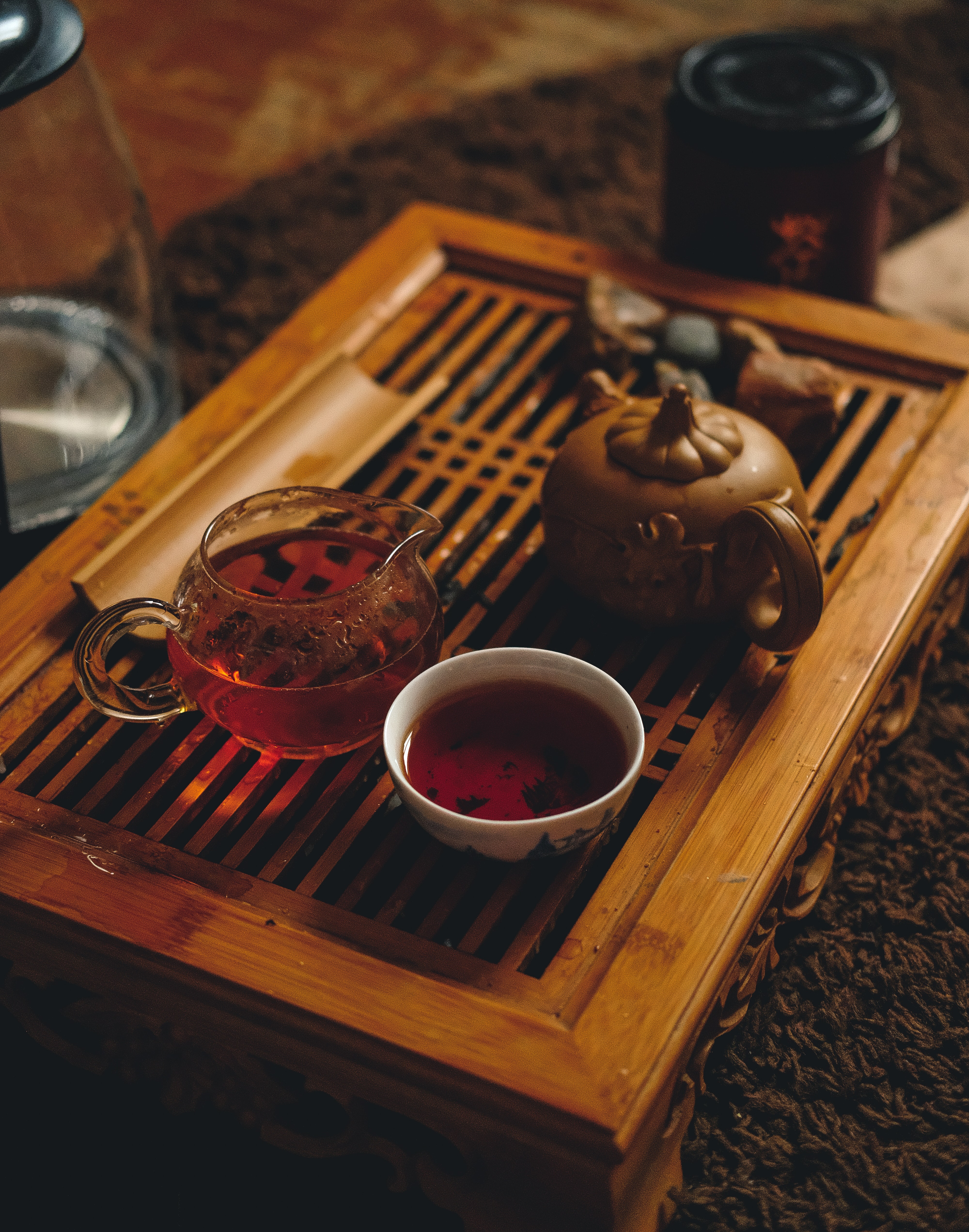Chinese Medicine's Top Teas

As an integral part of Chinese traditional medicine, tea has been revered for its medicinal properties for centuries. From aiding digestion to improving sleep, the benefits of tea are vast and varied. But with so many different types of tea available, it can be difficult to know which one to choose. To help you out, we’ve put together a list of the top 8 teas in Chinese traditional medicine, along with their unique benefits.
1. Green Tea
Green tea is perhaps the most well-known type of tea when it comes to health benefits. Rich in antioxidants, it has been shown to boost the immune system and reduce the risk of certain types of cancer. Green tea is also known for its calming effect on the mind and body, making it a great choice for stress relief.
Fun fact: In Chinese traditional medicine, green tea is often used to cool the body and alleviate symptoms of heat exhaustion.
2. Oolong Tea
Oolong tea is a partially oxidized tea that falls somewhere between green and black tea in terms of flavor and caffeine content. It is rich in polyphenols, which are powerful antioxidants that have been shown to reduce inflammation and protect against chronic diseases. Oolong tea is also known to aid in digestion and boost metabolism.
Fun fact: The name “oolong” means “black dragon” in Chinese, a reference to the tea’s long, curled leaves.
3. Pu-erh Tea
Pu-erh tea is a fermented tea that is aged for several years before being consumed. It has a strong, earthy flavor and is often used in Chinese traditional medicine to aid in digestion and promote weight loss. Pu-erh tea has also been shown to lower cholesterol levels and reduce the risk of heart disease.
Fun fact: Pu-erh tea is often sold in compressed “cakes” or “bricks” that can be aged for many years, similar to wine.
4. Chrysanthemum Tea
Chrysanthemum tea is a caffeine-free herbal tea that is made from the flowers of the chrysanthemum plant. It has a light, floral flavor and is often used in Chinese traditional medicine to alleviate headaches and reduce inflammation. Chrysanthemum tea is also known for its cooling properties, making it a great choice for hot summer days.
Fun fact: In traditional Chinese culture, chrysanthemums are a symbol of longevity and are often used in artwork and decor.
5. Jasmine Tea
Jasmine tea is a type of green tea that is scented with jasmine flowers. It has a delicate floral flavor and is often used in Chinese traditional medicine to reduce stress and anxiety. Jasmine tea is also rich in antioxidants, making it a great choice for overall health and wellness.
Fun fact: Jasmine tea has been enjoyed in China for over 1000 years and is often served during important social occasions.
No matter which tea you choose, incorporating it into your daily routine can have numerous health benefits. So why not brew a cup and savor the taste and benefits of Chinese traditional medicine today?
6. Ginger Tea
Ginger is a powerful herb with many health benefits, including reducing inflammation, aiding digestion, and relieving nausea. Ginger tea is a popular remedy for colds and flu, and is also known for its ability to improve circulation and boost energy levels.
Fun fact: Ginger is a member of the same family as turmeric and cardamom.
7. Goji Berry Tea
Goji berries are known for their high antioxidant content and immune-boosting properties. Goji berry tea is believed to help with blood sugar control, improve vision, and promote healthy skin. It has a slightly sweet and nutty flavor.
Fun fact: Goji berries have been used in Chinese medicine for over 2,000 years.
8. Licorice Root Tea
Licorice root tea is known for its anti-inflammatory and anti-viral properties. It’s commonly used to soothe sore throats and coughs, and can also help with digestive issues and menstrual cramps. Licorice root has a naturally sweet flavor, making it a popular choice for those who prefer sweeter teas.
Fun fact: Licorice root has been used in Chinese medicine for thousands of years, and is also used in traditional Ayurvedic medicine.
 Never miss a
story from us, subscribe to our newsletter
Never miss a
story from us, subscribe to our newsletter